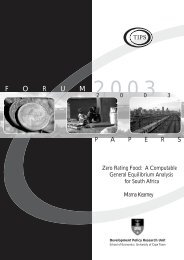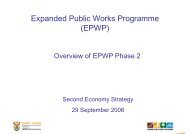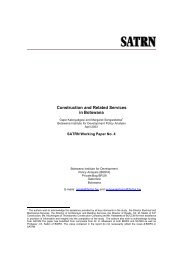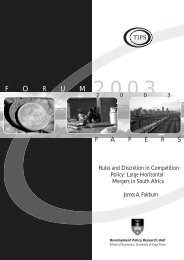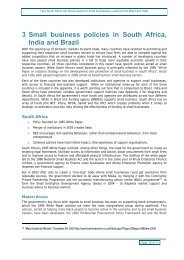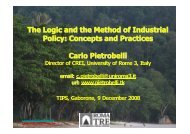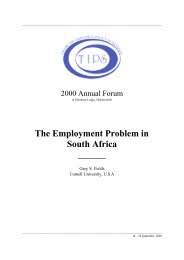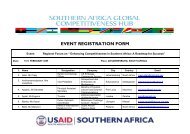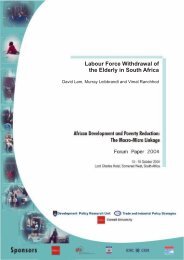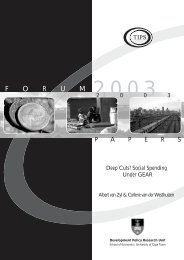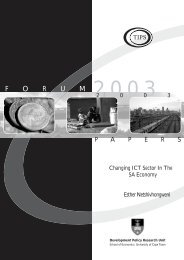(AsgiSA) Annual Report 2008 - South African Government Information
(AsgiSA) Annual Report 2008 - South African Government Information
(AsgiSA) Annual Report 2008 - South African Government Information
You also want an ePaper? Increase the reach of your titles
YUMPU automatically turns print PDFs into web optimized ePapers that Google loves.
Accelerated and Shared Growth Initiative for <strong>South</strong> Africa<br />
ANNUAL REPORT<br />
<strong>2008</strong><br />
3. Second-Economy Initiatives<br />
3.1. Background<br />
The <strong>AsgiSA</strong> <strong>Annual</strong> <strong>Report</strong>, presented in February 2007, identified a need for more focus on<br />
”the Second Economy”’, and on mechanisms to ensure shared growth reaches the margins<br />
of the economy. It was in this context that the Second-Economy Strategy Project was initiated.<br />
It reports to the <strong>AsgiSA</strong> High Level Task Team in The Presidency.<br />
Phase One was to review the performance of existing government programmes targeting<br />
the Second Economy. This process was completed in early <strong>2008</strong> and the outcomes are available<br />
at www.tips.org.za. The aim of Phase Two was to develop an expanded strategy for the<br />
Second Economy, building on existing programmes where possible and innovating where<br />
necessary.<br />
Research and policy proposals from the process were presented to a ”Work in Progress”<br />
workshop in May <strong>2008</strong> and to a conference entitled “Second-Economy Strategy: Addressing<br />
Inequality and Economic Marginalisation”, held from 29 September to 1 October <strong>2008</strong>.<br />
A framework and a set of ”headline strategies”’ resulting from these processes are summarised<br />
here. These have been presented and approved for infusing/mainstreaming into<br />
government policy, strategies and programmes by the January Lekgotla.<br />
As well as this research, there were projects that were implemented within the Second<br />
Economy ambit, and these include Jobs for Growth, youth programmes and Mzansi stores,<br />
all of which will be reported on below.<br />
3.2 The Second-Economy Research Project<br />
3.2.1 What is the ”Second Economy”?<br />
<strong>South</strong> Africa has a highly unequal economy in which people with access to wealth experience<br />
the country as a developed modern economy, while the poorest still struggle to access<br />
even the most basic services. The differences in conditions between the two are so stark<br />
they appear to be worlds apart – giving the notion of ”two economies” resonance. Yet, these<br />
realities are in fact connected and interdependent in a range of complex ways, with certain<br />
common processes producing or reinforcing these extremes in access and opportunity.<br />
Analysing these processes has been a long-standing source of debate in <strong>South</strong> Africa – this<br />
debate necessarily also informs the development of a strategy for the Second Economy.<br />
8



